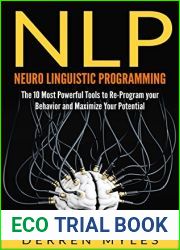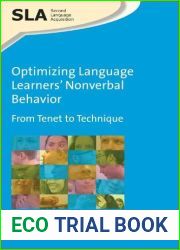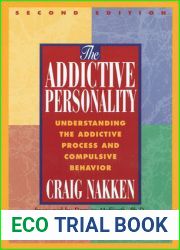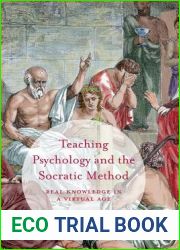
BOOKS - Sources of Knowledge and Entrepreneurial Behavior

Sources of Knowledge and Entrepreneurial Behavior
Author: David B. Audretsch
Year: January 9, 2019
Format: PDF
File size: PDF 1.7 MB
Language: English

Year: January 9, 2019
Format: PDF
File size: PDF 1.7 MB
Language: English

The book "Sources of Knowledge and Entrepreneurial Behavior" by David B. Audretsch and Albert N. Link offers a comprehensive exploration of the relationship between sources of knowledge and entrepreneurial behavior, providing valuable insights for both academics and policymakers. The authors rely on the Knowledge Spillover Theory of Entrepreneurship as the conceptual foundation for their study, which posits that individuals become entrepreneurs due to the spillover of knowledge from one context to another. To examine the validity of this theory, Audretsch and Link draw upon a database of over 400 small and new European companies from ten countries, known as the AEGIS database. Their analysis reveals that there is no single source of knowledge driving entrepreneurship, but rather a variety of sources, each associated with distinct aspects of entrepreneurial activity. This intellectual breakthrough challenges the conventional view that knowledge, particularly entrepreneurial knowledge, is a homogenous entity. Instead, the authors demonstrate that knowledge is diverse and multifaceted, with multiple sources influencing entrepreneurial performance in various ways. The book is divided into four parts, each delving into a different aspect of the relationship between knowledge and entrepreneurial behavior.
Книга «Источники знаний и предпринимательское поведение» Дэвида Б. Аудретша и Альберта Н. Линка предлагает всестороннее исследование взаимосвязи между источниками знаний и предпринимательским поведением, предоставляя ценную информацию как для ученых, так и для политиков. Авторы опираются на теорию предпринимательства «Распространения знаний» в качестве концептуальной основы для своего исследования, которая утверждает, что люди становятся предпринимателями из-за распространения знаний из одного контекста в другой. Чтобы изучить обоснованность этой теории, Audretsch и Link опираются на базу данных более 400 малых и новых европейских компаний из десяти стран, известную как база данных AEGIS. Их анализ показывает, что не существует единого источника знаний, движущих предпринимательством, а скорее множество источников, каждый из которых связан с различными аспектами предпринимательской деятельности. Этот интеллектуальный прорыв ставит под сомнение общепринятое мнение о том, что знания, особенно предпринимательские знания, являются однородной сущностью. Вместо этого авторы демонстрируют, что знания разнообразны и многогранны, причем различные источники по-разному влияют на предпринимательскую деятельность. Книга разделена на четыре части, каждая из которых углубляется в разный аспект взаимосвязи между знаниями и предпринимательским поведением.
livre Sources de connaissances et comportement entrepreneurial de David B. Audretsch et Albert N. Link propose une étude approfondie de la relation entre les sources de connaissances et le comportement entrepreneurial, fournissant des informations précieuses aux scientifiques et aux décideurs. s auteurs se fondent sur la théorie de l'entrepreneuriat de la diffusion des connaissances comme base conceptuelle de leur étude, qui affirme que les gens deviennent entrepreneurs en raison de la diffusion des connaissances d'un contexte à un autre. Pour étudier la validité de cette théorie, Audretsch et Link s'appuient sur une base de données de plus de 400 petites et nouvelles entreprises européennes de dix pays, connue sous le nom de base de données AEGIS. ur analyse montre qu'il n'y a pas une seule source de connaissances qui motive l'entreprenariat, mais plutôt une multitude de sources, chacune liée à différents aspects de l'entreprise. Cette percée intellectuelle remet en question l'idée généralement acceptée que le savoir, en particulier le savoir entrepreneurial, est une entité homogène. Au lieu de cela, les auteurs démontrent que les connaissances sont variées et multidimensionnelles, les différentes sources ayant une influence différente sur les activités commerciales. livre est divisé en quatre parties, chacune d'entre elles se penchant sur un aspect différent de la relation entre le savoir et le comportement entrepreneurial.
libro «Fuentes de conocimiento y comportamiento empresarial» de David B. Audretsch y Albert N. Link ofrece un estudio exhaustivo de la relación entre las fuentes de conocimiento y el comportamiento empresarial, proporcionando información valiosa tanto para académicos como para políticos. autores se basan en la teoría del emprendimiento de la «Difusión del Conocimiento» como base conceptual para su estudio, que afirma que las personas se convierten en emprendedoras debido a la difusión del conocimiento de un contexto a otro. Para estudiar la validez de esta teoría, Audretsch y Link se basan en una base de datos de más de 400 pequeñas y nuevas empresas europeas de diez países, conocida como base de datos AEGIS. Su análisis muestra que no hay una sola fuente de conocimiento que impulse el emprendimiento, sino más bien una multitud de fuentes, cada una de ellas relacionada con diferentes aspectos del emprendimiento. Este avance intelectual cuestiona la creencia generalmente aceptada de que el conocimiento, especialmente el conocimiento empresarial, es una entidad homogénea. En cambio, los autores demuestran que el conocimiento es diverso y polifacético, con diferentes fuentes que influyen de manera diferente en la actividad empresarial. libro se divide en cuatro partes, cada una de las cuales profundiza en un aspecto diferente de la relación entre conocimiento y comportamiento empresarial.
O livro «Fontes de Conhecimento e Comportamento Empreendedor», de David B. Audretsch e Albert N. Link, oferece uma pesquisa completa sobre a relação entre as fontes de conhecimento e o comportamento empreendedor, fornecendo informações valiosas para cientistas e políticos. Os autores se baseiam na teoria do empreendedorismo Disseminação do Conhecimento como base conceitual para sua pesquisa, que afirma que as pessoas se tornam empreendedoras devido à disseminação do conhecimento de um contexto para o outro. Para estudar a validade desta teoria, a Audretsch e Link se baseiam em um banco de dados de mais de 400 pequenas e novas empresas europeias de dez países, conhecido como banco de dados AEGIS. Suas análises indicam que não há uma única fonte de conhecimento que mova o empreendedorismo, mas sim muitas fontes, cada uma delas associada a vários aspectos do empreendimento. Este avanço intelectual coloca em dúvida a crença convencional de que o conhecimento, especialmente o conhecimento empresarial, é uma entidade homogênea. Em vez disso, os autores demonstram que o conhecimento é variado e multifacetado, com diferentes fontes que influenciam diferentes atividades empresariais. O livro é dividido em quatro partes, cada uma aprofundada em um aspecto diferente da relação entre conhecimento e comportamento empresarial.
Il libro «Fonti di conoscenza e comportamento imprenditoriale» di David B. Audretsch e Albert N. Link offre una ricerca completa sulla relazione tra le fonti di conoscenza e il comportamento imprenditoriale, fornendo informazioni preziose sia agli scienziati che ai politici. Gli autori si basano sulla teoria imprenditoriale della diffusione della conoscenza come base concettuale per la loro ricerca, che sostiene che le persone diventano imprenditori a causa della diffusione della conoscenza da un contesto all'altro. Per studiare la validità di questa teoria, Audretsch e Link si basano su un database di oltre 400 piccole e nuove aziende europee provenienti da dieci paesi, noto come database AEGIS. loro analisi indicano che non esiste un'unica fonte di conoscenza che spinga l'imprenditoria, ma piuttosto molte fonti, ognuna legata a diversi aspetti dell'attività imprenditoriale. Questa svolta intellettuale mette in dubbio la convinzione comune che la conoscenza, in particolare la conoscenza imprenditoriale, sia un'entità omogenea. Gli autori dimostrano invece che le conoscenze sono diverse e molteplici, con diverse fonti che influenzano diversamente le attività imprenditoriali. Il libro è suddiviso in quattro parti, ognuna delle quali viene approfondita in un aspetto diverso della relazione tra conoscenza e comportamento imprenditoriale.
Das Buch „Knowledge Sources and Entrepreneurial Behavior“ von David B. Audretsch und Albert N. Link bietet eine umfassende Untersuchung der Beziehung zwischen Wissensquellen und unternehmerischem Verhalten und liefert wertvolle Informationen für Wissenschaftler und Politiker gleichermaßen. Die Autoren stützen sich auf die „Knowledge Spread“ -Entrepreneurship-Theorie als konzeptionellen Rahmen für ihre Studie, die besagt, dass Menschen aufgrund der Verbreitung von Wissen von einem Kontext in einen anderen zu Unternehmern werden. Um die Gültigkeit dieser Theorie zu untersuchen, stützen sich Audretsch und Link auf eine Datenbank von mehr als 400 kleinen und neuen europäischen Unternehmen aus zehn Ländern, die als AEGIS-Datenbank bekannt ist. Ihre Analyse zeigt, dass es keine einzige Wissensquelle gibt, die das Unternehmertum antreibt, sondern eine Vielzahl von Quellen, die jeweils mit verschiedenen Aspekten des Unternehmertums verbunden sind. Dieser intellektuelle Durchbruch stellt die allgemein akzeptierte Ansicht in Frage, dass Wissen, insbesondere unternehmerisches Wissen, eine homogene Einheit ist. Stattdessen zeigen die Autoren, dass Wissen vielfältig und facettenreich ist, wobei verschiedene Quellen die unternehmerischen Aktivitäten unterschiedlich beeinflussen. Das Buch ist in vier Teile gegliedert, die jeweils in einen anderen Aspekt der Beziehung zwischen Wissen und unternehmerischem Verhalten eintauchen.
Książka „Źródła wiedzy i zachowania przedsiębiorcze” Davida B. Audretscha i Alberta N. Link oferuje kompleksowe badanie relacji między źródłami wiedzy a zachowaniem przedsiębiorczości, dostarczając cennych informacji zarówno naukowcom, jak i decydentom politycznym. Autorzy wykorzystują poszerzenie wiedzy teorii przedsiębiorczości jako koncepcyjne ramy ich badań, które dowodzą, że ludzie stają się przedsiębiorcami ze względu na rozpowszechnianie wiedzy z jednego kontekstu do drugiego. Aby zbadać zasadność tej teorii, Audretsch i Link opierają się na bazie danych ponad 400 małych i nowych firm europejskich z dziesięciu krajów, znanych jako baza danych AEGIS. Z ich analizy wynika, że nie ma jednego źródła wiedzy napędzającego przedsiębiorczość, ale raczej wielu źródeł, z których każda związana jest z różnymi aspektami działalności przedsiębiorczej. Ten przełom intelektualny stawia przed konwencjonalną mądrością, że wiedza, zwłaszcza wiedza przedsiębiorcza, jest jednolitą jednostką. Zamiast tego autorzy pokazują, że wiedza jest zróżnicowana i wielowątkowa, a różne źródła wpływają na działalność przedsiębiorczą na różne sposoby. Książka podzielona jest na cztery części, z których każda rozciąga się na inny aspekt relacji między wiedzą a zachowaniem przedsiębiorczym.
''
David B. Audretsch ve Albert N. Link'in "Bilgi Kaynakları ve Girişimci Davranış" kitabı, hem bilim adamları hem de politika yapıcılar için değerli bilgiler sağlayan, bilgi kaynakları ve girişimci davranış arasındaki ilişki hakkında kapsamlı bir çalışma sunmaktadır. Yazarlar, girişimciliğin Bilgi Uzantısı teorisini, araştırmalarının kavramsal bir çerçevesi olarak kullanırlar; bu, bilginin bir bağlamdan diğerine yayılması nedeniyle insanların girişimci olduğunu savunur. Bu teorinin geçerliliğini incelemek için Audretsch ve Link, AEGIS veritabanı olarak bilinen on ülkeden 400'den fazla küçük ve yeni Avrupa şirketinin bir veritabanına güveniyor. Analizleri, girişimciliği yönlendiren tek bir bilgi kaynağı olmadığını, ancak her biri girişimcilik faaliyetinin farklı yönleriyle ilgili birden fazla kaynak olduğunu göstermektedir. Bu entelektüel atılım, bilginin, özellikle de girişimcilik bilgisinin homojen bir varlık olduğu yönündeki geleneksel bilgeliğe meydan okuyor. Bunun yerine, yazarlar bilginin çeşitli ve çok yönlü olduğunu, farklı kaynakların girişimcilik faaliyetlerini farklı şekillerde etkilediğini göstermektedir. Kitap, her biri bilgi ve girişimci davranış arasındaki ilişkinin farklı bir yönünü inceleyen dört bölüme ayrılmıştır.
يقدم كتاب «مصادر المعرفة وسلوك ريادة الأعمال» من تأليف ديفيد ب. أودريتش وألبرت ن. لينك دراسة شاملة للعلاقة بين مصادر المعرفة وسلوك ريادة الأعمال، مما يوفر معلومات قيمة لكل من العلماء وصانعي السياسات. يعتمد المؤلفون على نظرية امتداد المعرفة لريادة الأعمال كإطار مفاهيمي لأبحاثهم، والتي تجادل بأن الناس يصبحون رواد أعمال بسبب انتشار المعرفة من سياق إلى آخر. لفحص صحة هذه النظرية، تعتمد Audretsch و Link على قاعدة بيانات تضم أكثر من 400 شركة أوروبية صغيرة وجديدة من عشر دول، تُعرف باسم قاعدة بيانات AEGIS. ويبين تحليلهم أنه لا يوجد مصدر واحد للمعرفة يحرك مباشرة الأعمال الحرة، وإنما مصادر متعددة، يتصل كل منها بجوانب مختلفة من أنشطة تنظيم المشاريع. يتحدى هذا الاختراق الفكري الحكمة التقليدية القائلة بأن المعرفة، وخاصة معرفة ريادة الأعمال، هي كيان متجانس. بدلاً من ذلك، أثبت المؤلفون أن المعرفة متنوعة ومتعددة الأوجه، مع مصادر مختلفة تؤثر على نشاط ريادة الأعمال بطرق مختلفة. ينقسم الكتاب إلى أربعة أجزاء، يتعمق كل منها في جانب مختلف من العلاقة بين المعرفة وسلوك ريادة الأعمال.
David B. Audretsch和Albert N. Link撰寫的《知識來源與企業家行為》一書全面探討了知識來源與企業家行為之間的關系,為學者和決策者提供了寶貴的信息。作者借鑒了「知識傳播」創業理論作為其研究的概念基礎,該研究認為,由於知識從一個背景傳播到另一個背景,人們成為企業家。為了研究該理論的有效性,Audretsch和Link依靠來自十個國家/地區的400多家小型和新興歐洲公司的數據庫,即AEGIS數據庫。他們的分析表明,沒有單一的知識來源推動創業,而是許多來源,每個來源都與經營活動的不同方面有關。這種智力突破挑戰了傳統觀念,即知識,特別是創業知識,是同質的實體。相反,作者證明知識是多樣化和多方面的,不同的來源對創業活動的影響不同。這本書分為四個部分,每個部分都深入研究知識與創業行為之間關系的不同方面。

















































